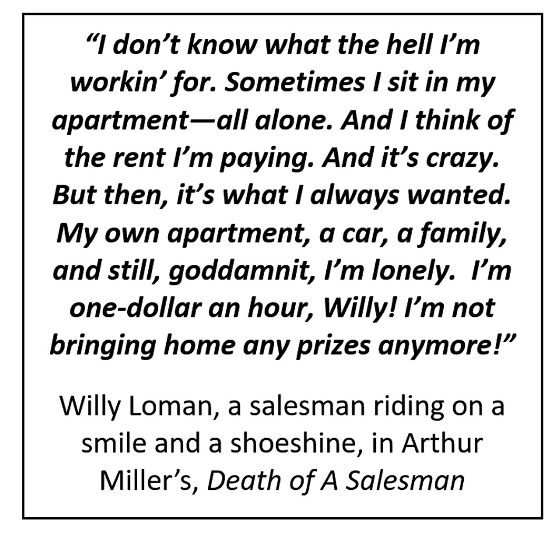The most dangerous time of the month
It’s the last day of the month. On this Friday, eight motorcycle drivers are waiting at the perimeter of a factory, 60 km from Bangkok. A throng of workers exit the factory. They hand over their ATM cards to the drivers, who know the passwords. Nobody smiles. They speed off, return twenty minutes later, having emptied the accounts for the debts owed with 10%to30% interest for the month.

Thailand has experienced significant economic growth and development for several decades, and even in the worst of times, it’s been resilient. Thailand recovered from the Tom Yum Goong crisis of 1997 and weathered the global financial crisis of 2008, and Covid of 2019-2022, all rather spectacularly.
An Itch That’s Not Going Away
But if you scratch below the surface, economic woes itch in abundance. Whatever the problem, money is the solution. Most people don’t have reserves, and if they don’t qualify for bank loans, they turn to informal moneylenders or loan sharks who exploit these desperate circumstances with predatory lending practices. A pattern of dependency builds, and soon enough, the borrowers will always be 100 baht short from having fifty.
Predatory lending refers to the unethical practices of persons that take advantage of vulnerable borrowers. Excessive fees, high interest rates, and other unfair terms are the usual suspects. Sure, the initial visit for credit gives a lift, like a tumbler of whisky. But visits repeat, habits take hold like a heavy chain, and the hangover-debt trap begins.
Arthur Miller in Thailand
Arthur Miller’s, Death of A Salesman was not about predatory lending, but it did dramatize the bind of not having sufficient funds. The hapless Willy Loman says, “After all the highways, and the trains, and the appointments, and the years, you end up worth more dead than alive.”
In real life, debt happens way before the end that Willy speaks of. Insurmountable debt accumulates and it works on the mind like a financial termite. It can turn otherwise free, happy, people into bitter and ruinous individuals. At first, there’s no money to put in the wallet. The next to go is the family photos, the photos where the money used to be. Homelife ceases to be a sanctuary. Debt habit is the twin brother of poverty.
The ‘Every Man’ Debtor
Victims of predatory loan practices are not always at the bottom of the pay scale. Mid-level managers can run into an unanticipated cash squeeze. Predatory lenders are costly, but convenient, for a short fix. However, the fix becomes the fox, and the fox is at the henhouse. The cycle of debt perpetuates.

No Singular Identity
Informal lenders dominate in rural areas and among low-income populations, where banks haven’t fulfilled their financial inclusion commitments. These lenders may conjure up images of wiry-muscled guys with serpent tattoos and brass knuckles. But their identities are diverse, and the ratio between male and female lenders is roughly equal. Lenders could be a co-worker, or a line manager too. They view their willingness to lend not as unethical, but as a streak of entrepreneurship. For them, it’s a side business, the art of extracting money, usually without resorting to violence. The usurious rates, albeit illegal, are simply a gambit to cover the risk.
Shadow World
The government has taken steps to address predatory lending. The Office of the Consumer Protection Board (OCPB) and the Bank of Thailand have implemented regulations and initiatives aimed to curb abusive lending practices. These measures include maximum interest rates, transparent terms, and strengthened consumer protection laws. Unfortunately, predatory lending works in the shadows, beyond the reach of regulatory enforcement, where lending occurs through personal relationships.
So, there needs to be a workable solution. And there is one.
Financial Stress to Financial Health
A number of new startups around the world have emerged to provide financial flexibility to lower income workers. Wagestream in the UK has raised over US$200 million to give frontline workers access to better financial health tools. Similarly, Refyne in India has raised over US$100 million to tackle the same problem.
Close to home, a fast-growing Thai startup, Salary Hero, has been making waves with its product suite. It’s designed to provide financial flexibility to lower-income Thai workers on an easy-to-use digital platform. This means that workers get access to fair financial services that ‘give not take.’ Salary Hero provides earned wage access, high yields savings, budgeting tools and financial education, with its core service being ‘salary on demand.’
It works like this. Salary Hero steps in before month-end to pay on salary earned, but not yet due for payment. There’s no risk because there’s no lending to the employee. Thus, an employee with a short-term need of money can access the earned portion of the salary due at month end. The company monetizes its services by charging a low subscription fee for employers and an access fee. It doesn’t charge interest, nor any hidden fee.
By being able to access their earned wages on demand, workers have another option to handle emergencies and unforeseen expenses, instead of resorting to usurious lenders. Thus, this technology with an impact, leveling the playing field in Thailand and Southeast Asia. Prabhav Rakhra, CEO of Salary Hero, says, “80% of Thai workers who make less than $1,000 USD a month have used loan sharks at some point. This negatively impacts companies as their staff are more stressed and less productive.”
Employee Journey
These new-age startups try to help employees stop earnings leakage. Rakhra says, “What typically happens is that an employee starts to build up savings for five or six months, then bang, a bad event happens, and its’ off to the local loan shark. Rinse and repeat with each emergency. We try to take employees out of that vicious cycle.”
This isn’t a patch a hole and go. Employees go on a three-step journey: Fix the basics, build a foundation, maintain financial health. It’s another option.
CSR Opportunity for Employers
Interestingly, employers that provide ‘salary on demand’ to their staff win big too. They’re more likely to improve staff retention, build loyalty, and reduce leakage of monies previously spent on training. Companies that are cost sensitive may see this as an internal corporate social responsibility (CSR) initiative and show they value employees without having to extend any loans. By addressing the financial needs of their workers, companies are able to improve employee satisfaction and reduce turnover. Once an employer understands where its employees are emotionally, this is CSR that delivers an immediate impact.
Conclusion
Managing money is hard, especially when you don’t have any. Mark Twain said, “October is one of the particularly dangerous months. Other dangerous months are July, January, September, April, November, May, March, June, December, August and February.” The end of every month is dangerous for many workers in Thailand who see no choice except the time to visit their creditors. These new startups provide an innovative option for employees and employers.